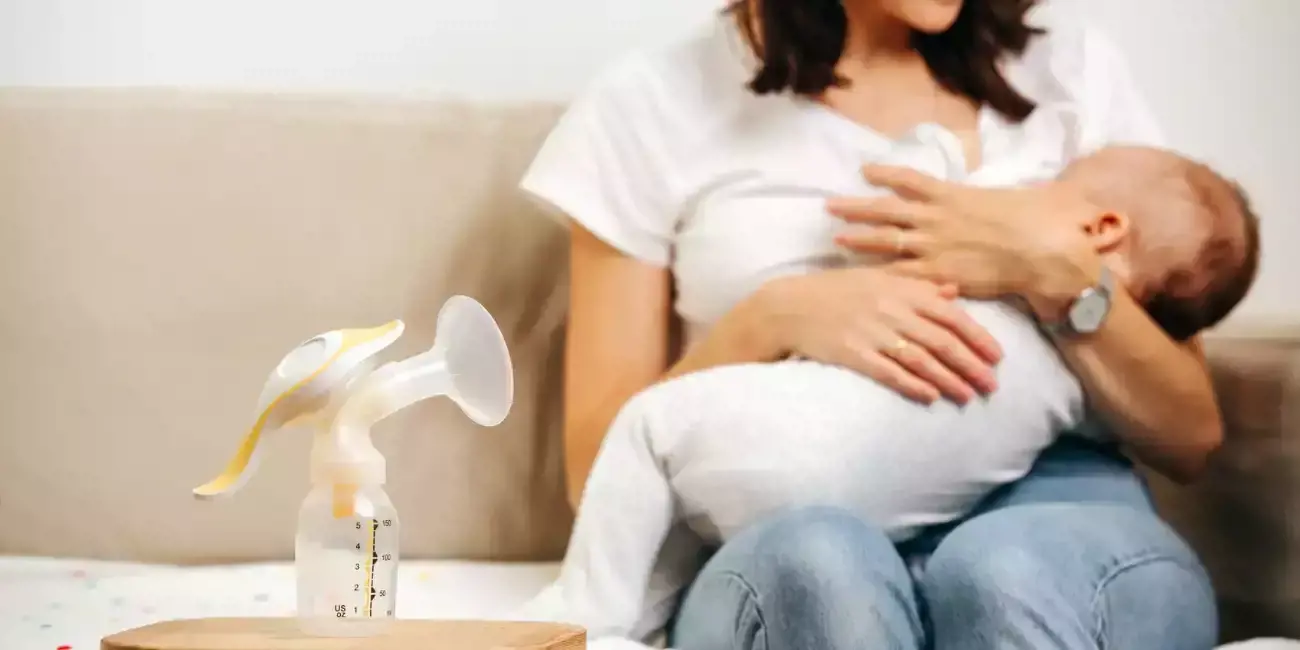Just because you're breastfeeding, doesn't mean you're not able to carefully plan.
It can be possible to drink alcoholic beverages as a breastfeeding mum; and to help you understand the ins and outs of safe alcohol consumption, we're sharing some information and advice from the Australian Breastfeeding Association (ABA).
What do you need to know about alcohol in breast milk?
The first thing to know when it comes to alcohol and breastfeeding is that the concentration of alcohol in your blood is the concentration of alcohol in your milk. Alcohol gets into your breast milk from your blood, moving freely from the blood to the breast milk, then back out again.
When it comes to timing, the alcohol consumed will be in your breastmilk 30 to 60 minutes after you start drinking, and there are a few factors which affect how much alcohol gets into your breastmilk, including:
- The strength and amount of alcohol in your drink
- What, and how much, you've eaten
- How much you weigh, and
- How quickly you're drinking.
As a general rule, it takes two hours for an average woman to be free of the alcohol from one standard alcoholic beverage, four hours for two drinks, six hours for three drinks, and so on.
The time is counted from when you first start consuming alcohol, and it's important to know what a proper standard drink is (e.g. a ‘glass' of wine often contains a lot more than the 10g of alcohol, or 100 ml of liquid, that a standard wine is measured by).
How will you know when your alcohol consumption is out of your breast milk?
The Feed Safe app is an excellent way to work out when your breast milk is free of alcohol, based on your individual height, weight and the drinks you're having.
It has a timer to count down the hours and minutes till your breast milk should be alcohol-free, and also comes with a standard drinks guide so you know how much alcohol is in common beverages, like beer and wine.
The app is free and it can be downloaded from Google Play and the App Store.
Are there any quick ways to remove alcohol from breast milk?
Unfortunately, not. Only time will reduce the alcohol levels in your breastmilk, and once you stop drinking, the amount of alcohol in both your blood and breastmilk will decrease.
‘Pumping and dumping' (expressing breastmilk and throwing it away) won't lower the amount of alcohol in your breastmilk.
You also don't need to do this once the alcohol has passed through your system, because alcohol isn't ‘stored' in the milk in your breasts, just as it doesn't remain in your blood. Once the alcohol is out of your blood, it will be out of your breast milk.
It's also important to know that if you express while your breastmilk contains alcohol, that expressed breastmilk will continue to contain alcohol.
How can you plan to drink some alcohol while breastfeeding?
The safest option for breastfeeding mothers is to avoid drinking alcohol altogether.
However, if you're planning to drink alcohol at that family lunch or work party, it's best to think ahead and express some milk.
To save precious expressed milk, it is suggested that you offer to breastfeed immediately before having a drink.
Your baby may not want, or need, the expressed milk in the time it takes for alcohol to pass from your system, but it will be there and available should you decide to have an extra drink, or your baby does desire some additional milk (and you're still waiting for the alcohol in your breastmilk to go).
There's information about storing expressed milk supply here.
As a guide, an exclusively breastfed baby (aged one to six months) drinks an average of 750ml to 800ml of milk per 24 hours (though between 500ml and 1,000ml is normal, too).
This can help you work out how much milk they'll need if you're not breastfeeding for say, six hours.
What should you do if your baby needs to feed, but you don't have any alcohol-free milk at hand?
If, just once, or on a rare occasion, you drink alcohol and haven't planned ahead, or your baby (over one month of age) needs to feed sooner than you thought they would, the ABA says it is okay to breastfeed.
It is important to plan ahead and make sure you always have a non-drinker to care for your baby, a safe sleeping place for your baby, and that you are careful to not share a bed with your baby if you've been drinking alcohol.
This video from Dr Lisa Amir (GP/IBCLC) explains further the use of medications and alcohol while breastfeeding.
And if you have any questions about breastfeeding during the party season, or breastfeeding generally, you can always speak with a breastfeeding counsellor on the Breastfeeding Helpline. Simply call 1800 mum 2 mum (1800 686 268).
At the end of the day, mocktails are your friend when breastfeeding, and it is possible to get that festive feeling without alcohol. Maternal alcohol consumption greatly affects the quality of your milk production so if you want to err on the safe side as you should, binge drinking should be a no. However, if you do enjoy a full-strength drink, it's good to know that you can plan to have a little alcohol without affecting your precious baby.


































